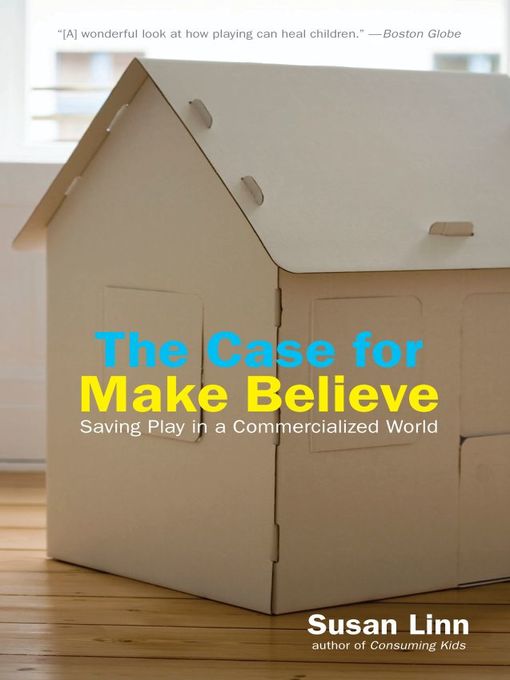A book with immediate relevance for parents and educators alike, The Case for Make Believe helps readers understand how crucial child's play is—and what parents and educators can do to protect it. At the heart of the book are stories of children at home, in school, and at a therapist's office playing about real-life issues from entering kindergarten to a sibling's death, expressing feelings they can't express directly, and making meaning of an often confusing world.
In an era when toys come from television and media companies sell videos as brain-builders for babies, Linn lays out the inextricable links between play, creativity, and health, showing us how and why to preserve the space for make believe that children need to lead fulfilling and meaningful lives.
-
Creators
-
Publisher
-
Release date
July 1, 2009 -
Formats
-
Kindle Book
-
OverDrive Read
- ISBN: 9781595586568
-
EPUB ebook
- ISBN: 9781595586568
- File size: 281 KB
-
-
Languages
- English
-
Reviews
-
Publisher's Weekly
April 7, 2008
A ventriloquist and psychologist, Linn (Consuming Kids
) claims that the act of make-believe is disappearing. In her impassioned plea for its survival, Linn reveals that play has many benefits, including helping kids develop problem-solving, critical thinking and social skills. Play also enables children to explore their inner feelings, cope with challenges and promotes emotional healing. Linn reveals how she uses puppets to encourage deeply troubled kids to explore their feelings, pointing out that imaginative play helps all children cope with such issues as separation, anger and fear. Tragically, Linn claims, play is on a downswing, replaced by TV time and highly marketed media-linked toys and electronic media that discourage real creativity. In fact, despite the American Academy of Pediatrics' recommendation to prohibit screen time until the age of two, a study Linn cites reveals that 40% of infants under three months are regular screen viewers. The director of the Campaign for a Commercial-Free Childhood, Linn claims that the demise of play is a public health problem requiring an urgent campaign. She concludes with ways parents can incorporate creative play, while acknowledging the challenge of swimming against the powerful media tide.
-
Formats
- Kindle Book
- OverDrive Read
- EPUB ebook
Languages
- English
Loading
Why is availability limited?
×Availability can change throughout the month based on the library's budget. You can still place a hold on the title, and your hold will be automatically filled as soon as the title is available again.
The Kindle Book format for this title is not supported on:
×Read-along ebook
×The OverDrive Read format of this ebook has professional narration that plays while you read in your browser. Learn more here.

